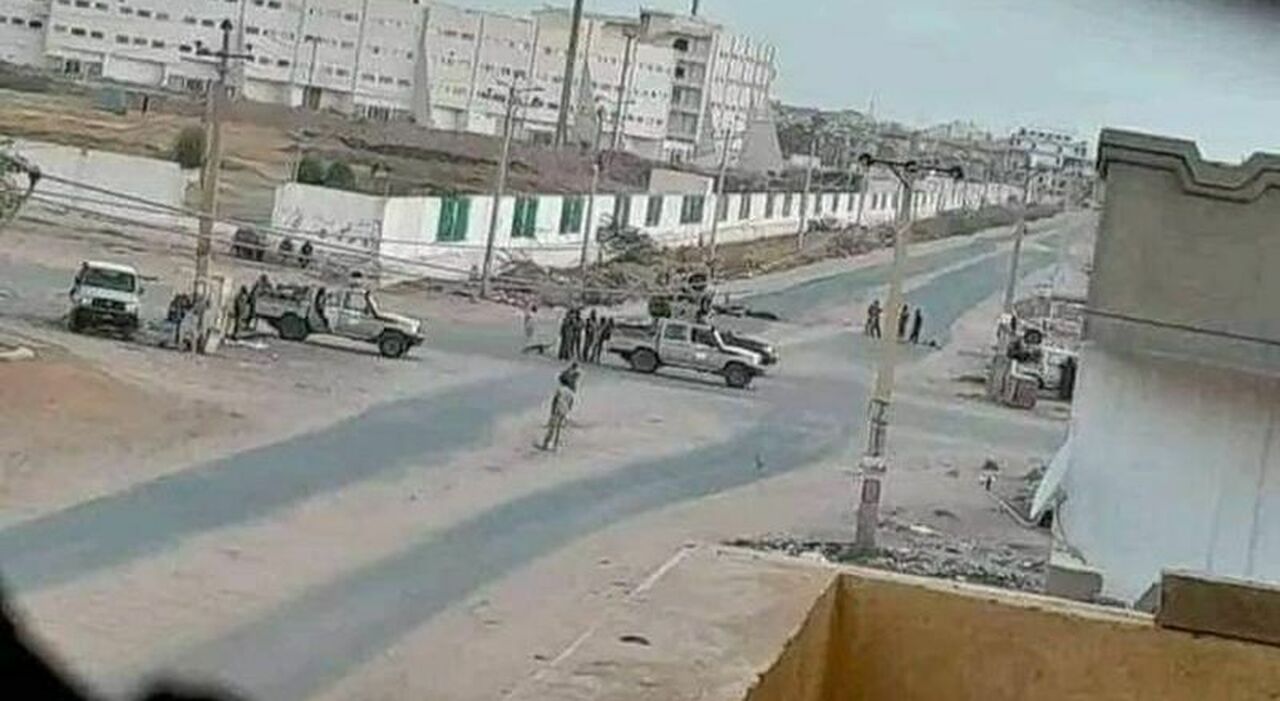Premium article access and all site content
With a dedicated app, newsletters, podcasts and live updates.
special offer
best offer
annual
19 euros
for a year
Choose now
monthly
1 euro per month
for 6 months
Choose now
special offer
best offer
annual
11.99 euros
for a year
Choose now
monthly
2 euros per month
for 12 months
Choose now
special offer
Read the full article and website on ilmessaggero.it
One year for €9.99 89.99 euros
or
1 euro per month for 6 months
Automatic renewal. Turn it off whenever you want.
- Unlimited access to articles on the site and in the application
- 7:30 Good morning newsletter
- Ore18 newsletter for today’s updates
- The podcast of our autographs
- Insights and live updates
However it ends up in SudanMohamed Hamdan Dagalo, nicknamed Hemeti, “Little Mohamed,” because of his childlike gaze, is a cinematic figure: from beauty seller to gold mine owner, from general suspected of war crimes to diplomat with more continental allies. Even in Russia. Let’s start from afar, before yesterday’s firefights and explosions in the middle Khartoum, with gunshots heard near the Italian embassy and the “stay at home” appeal addressed to citizens by Foreign Minister Antonio Tajani. From the testimonies, fear is clearly visible: “The shooting started at nine o’clock in the morning, we have to stay inside, let’s hope it ends soon.” Calls for an end to the clashes came from the Italian government, which joined the voices of the United Nations, the United States, the European Union, the African Union, the Arab League and Russia.
shots
As for the airport, the television headquarters and the presidential palace, soldiers from two generals fired at each other: on the one hand, Hamidti, commander of the paramilitary forces of the Rapid Intervention Forces, and on the other, Abdel Fattah al-Burhan, commander of the army and. A military council that promises to hand over power to a civilian executive. The rift between the army and paramilitaries has been worsening for months, hampering a transition based on the framework agreement signed last December 5. In fact, at the heart of the dispute lies military reform, with the Sudanese army wishing to integrate the RSF into its ranks already within two years while Dagalo wishing to place itself at the disposal of a civilian authority in a slower process. The paramilitary Rapid Support Forces are now seeking to seize power and dislodge the army in a confrontation of raids, shootings, airstrikes, armored mobilization and conflicting declarations. In the evening the position, which encircled no less than 150 Italians, seemed to hang in the balance. Only the provisional death toll would be at least three civilians and nine wounded, including an officer. The armed forces in Burhan, the head of the Sovereignty Council, claimed that they had “reoccupied vital areas” and the situation was “about to be resolved”.
difficulties
The background goes back to 2019, when pro-democracy demonstrations led to the fall of Omar al-Bashir, another general, in power for 30 years, before and after the conflict in Darfur. It was from this region on the outskirts of Sudan that Hemedti’s rise began: the SWAT are the former “Janjaweed,” or so-called “devils on horseback,” Arab militias that set out to attack rebellious black communities in 2003. After the harshest phase of that Conflict, Hemedti continued to attack, occupying swaths of power and mountains laden with gold. It is enough to become the richest gold trader in Sudan. Gold is also a valuable resource for diplomacy. Which starts directly from Dubai, where Sudanese gold is sold and where Hemedti still maintains excellent relations. “Al-Burhan is appreciated by Egypt and Israel – explains Alex de Waal, director of the Foundation for World Peace, who has been working in Sudan for nearly 40 years – on the other hand, his rival Hemedti has ties to the Emirates and the Wagner Group’s paramilitary forces Russian”. This is also confirmed by the American condemnations of the gold deals of the Wagner Group and its president, Yevgening Prigozhin.
The role of the European Union
It seems that Brussels has neglected the Sudanese issue. According to de Waal, “Like the United States, the European Union assigned lower-ranking officials to the file without paying due attention.” Pity even for Italy. Both because its cooperation is investing in human rights in Sudan, with an ongoing package of programs worth more than one hundred million euros, and because the country is on a migration route that reaches from the Horn of Africa to the Mediterranean. It just so happens that the EU has funded Khartoum to manage the inflows and outflows. This money will also end up with Hemedti’s troops deployed as border guards: this is stated in a study by the American NGO “Enough”, according to which “European policies have legitimized the situation of militias in Sudan.”
Read the full article
on the messenger

“Infuriatingly humble analyst. Bacon maven. Proud food specialist. Certified reader. Avid writer. Zombie advocate. Incurable problem solver.”


